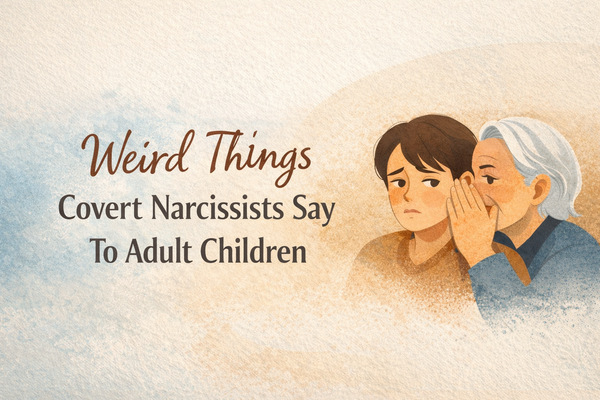Female Narcissistic Personality Disorder has been a subject of interest and public research quite a lot off late, primarily due to the devastating effects it can have on the females having this disorder and those around her. While narcissism is often conventionally associated with male behaviors, recent studies demonstrate a compelling need to do an in-depth analysis of how Narcissistic Personality Disorder manifests in women.
According to Diagnostic Statistical Manual of Mental Disorders-Fifth edition (DSM-5), Narcissistic Personality Disorder is a complex mental health condition characterized by grandiosity, lack of empathy, self-centered attitude, grandiosity, exploitative behaviors, and preoccupation with fantasies of success, power, and glamour.
You would be surprised to know that the overall prevalence of Narcissistic Personality Disorder is 0.5% to 1% in general population, with males diagnosed more frequently than females. However, this data might under present cases among women due to gender biases in the diagnostic criteria or subtle signs of NPD in women.
Female Narcissistic Personality Disorder can present differently than its male counterpart because of various reasons including societal expectations, gender roles, and interpersonal dynamics.
The internet and social media have a lot of articles highlighting male narcissism. How about I walk you through Female Narcissistic Personality Disorder so that you build some understanding of the basics and are able to identify a female narcissist if you have one around you?
Distinct Characteristics of Female Narcissistic Personality Disorder
It’s hard to identify female narcissistic personality disorder. Why do you think that is? Let me tell you why. It’s because female narcissism is “covert “or “vulnerable”. Covert narcissism is more concealed and subtle.
Some unique features of Female Narcissistic Personality Disorder are mentioned below:
1. Manipulation in relationships
Female narcissists often give more importance to relationships over personal growth, manipulating them to satisfy their narcissistic needs. They may pretend to be the caregivers or might play victim hood in the relationship to gain control and sympathy of others.
2. Its all about Beauty and Status
One thing about female narcissists is that they highly value physical appearance and social status. Most of the times you will notice them being at the top of the game of looks and social standing. They are obsessed with maintaining these societal standards to grab attention and get validation.
3. Competition & Jealousy
A very common trait of Female Narcissistic Personality Disorder is that they envy other women. You will hardly ever see them being happy with what they have and secretly eyeing what others have. They will try to put other women down by belittling them, gossiping about them, and making mean jokes on them in front of others.
4. Emotionally dependent
Have ever been in a relationship with a woman who forges an intense emotional connection with you, or seen someone around you doing it, and wondered what is it? Well, that is another dominant feature of a Female Narcissistic Personality Disorder. The relationship with a female narcissist is mostly a roller coaster ride with highs and lows, hardly ever stable. It keeps on fluctuating between adoration and criticism, leaving the other person confused and overwhelmed.
5. Victim game & Fragile ego
The key feature you can say of Female Narcissistic Personality Disorder is the tendency to play the victim card and present oneself as innocent who is in need of protection. You can spot a female narcissist around you if this characteristic resonates with you. You will probably notice such women getting immense support and sympathy from those around them and you would wonder WHY?!
Some Root Causes of Female Narcissistic Personality Disorder
Until now, we have gone through the key features of narcissism in women but we need to also ask how and why? What are the potential causes due to which women develop this personality disorder? Let’s try and find out.
The development of Narcissistic Personality Disorder can be traced back to a combination of genetic predispositions, childhood experiences, as well as social environment.
1. Parental Influence & Upbringing
Upbringing of a child plays a vital role in their character building and personality shaping. If parents overvalue a child’s achievements and brag about their beauty, it will instill a sense of entitlement in them. On the other hand, if a child faces too much neglect and criticism, they may develop narcissistic traits as a protective defence against feelings of inadequacy.
2. Societal Pressure
Our typical society gives a great deal of importance to appearance, especially of a woman. This societal pressure can lead to the exacerbation of narcissistic tendencies, forcing women to place special emphasis on their looks and status and gain validation through them.
3. Response to adversities/traumas
Various adversities, especially those associated with the gender, can also lead to the development of Female Narcissistic Personality Disorder. You might hear a lot of tragic stories from women who have narcissistic traits or personality disorder once to get into a deeper conversation with them. Women who have faced gender bias at their workplace, marginalization, or abuse in relationships may adopt such toxic traits to regain a sense of autonomy, and control in their lives.
Distinguishing Narcissistic Personality Disorder from other mental health conditions
Another major issue is to distinguish between Narcissistic Personality Disorder from other personality or mental health disorders.
I am inclined to ask this question from you that why is it so important to diagnose someone with Narcissistic Personality Disorder accurately? It is because, some of the traits of narcissism can overlap with other conditions such as borderline or histrionic personality disorder. This can lead to immense confusion and misdiagnosis of the Female Narcissistic Personality Disorder.
I will briefly discuss the key differences of Borderline and Histrionic Personality Disorders from Narcissistic Personality Disorder.
1. Histrionic Personality Disorder (HPD)
Individuals with HPD are excessively concerned with being the center of attention and may engage in dramatic behavior to achieve this. These individuals express emotions in an exaggerated manner and desire a constant need for approval. They may view relationships as more intimate than they actually are and may have difficulty in forming deep, meaningful relationships.
2. Borderline Personality Disorder (BPD)
People who suffer from BPD have extreme mood swings with intense and unstable emotions. Therefore, they tend to have unstable relationships. Such individuals have serious abandonment issues and can go to any extent to avoid separation or breakups. These people may struggle with low self-esteem due to distorted sense of self, leading to uncertainty about their goals and values.
3. Co morbid Mental Health Conditions
Other mental disorders can also coexist with Female Narcissistic Personality Disorder such as, Generalized Anxiety, Phobias, Depression, Obsessive-Compulsive Disorder. These co morbid conditions can make the diagnosis very challenging. Hence, it takes a lot of effort and expertise to diagnose NPD in females.
Approach to the management of Female Narcissistic Personality Disorder
I am sure you must be exhausted after reading such a lengthy text but my article would be incomplete without telling you about the treatment approaches of such a complex personality disorder.
Why do mental health experts say that it is quite difficult to manage NPD? Any idea?
Well, that’s because women with NPD often lack self-awareness and are not really motivated to work upon their toxic traits. Females usually consider Psychotherapy as a threat to their carefully crafted delicate self-image. However, some therapeutic strategies have proven beneficial so don’t get disheartened. Let me brief them to you.
1. Cognitive Behavioral Therapy (CBT)
It helps individuals recognize and re-frame maladaptive thought patterns. CBT focuses on addressing cognitive distortions related to appearance, entitlement, and social status. CBT also teaches healthier coping mechanisms and interpersonal skills.
2. Dialectical Behavior Therapy (DBT)
Effective in managing impulsivity, emotional dysregulation, and interpersonal conflict associated with NPD.
3. Schema Therapy
Dives into deep-rooted schemas such as, abandonment, unworthiness, and vulnerability, formed during early childhood years. It helps females with NPD identify and work on the dysfunctional beliefs that derive their behaviors in day to day life matters.
4. Psychodynamic Psychotherapy
It helps in unraveling the unconscious conflicts and exploring the psychological roots of NPD. Through Transference, a therapist may help females with NPD to examine their past relationships and how they are influencing their current relationship dynamics, gradually increasing self-awareness and emotional insight.
5. Motivational Interviewing
It encourages the female narcissist to recognize the impact of their behavior on others. It’s a client-centered approach, which emphasizes empathy and self-reflection rather than confrontation.
Takeaway Message
Female Narcissistic Personality Disorder is a multifaceted mental health condition, presenting unique challenges for understanding, diagnosis, and treatment. Rooted in complex psychological and social factors, it demands keen focus to identify the specific ways in which various actors mentioned above influence the development of NPD in women.
NPD can have a profound impact on the female suffering from it and those around her. It is essential to develop therapeutic approaches that highlight the importance of empathy, patience, and awareness of gender-specific dynamics. It will certainly help them in leading a more fulfilling and prosperous life.
Dr. Talia Siddiq is a resident psychiatrist in training at Dr. Ruth K.M. Pfau Civil Hospital Karachi, deeply passionate about understanding the human mind and helping people find healing. Beyond her clinical work, she is also a writer who believes that mental health conversations should be easy, relatable, and stigma-free.
She started writing in 2020, turning her reflections and experiences into articles that speak to the struggles many young people silently face—whether it’s self-harm, addictions, relationships, or simply finding direction in life. Over time, her writing has expanded into areas like career guidance and financial independence, because she strongly believes that resilience isn’t just about surviving emotionally—it’s about building a meaningful, balanced life.
For Talia, YouthTableTalk is more than a blog. It’s a safe corner on the internet where young people can pause, reflect, and feel understood. Her goal is not to lecture but to have a conversation—just like a friend who listens, shares, and gently guides you toward growth.
When she isn’t studying psychiatry or writing, you’ll often find her reading, exploring self-growth books, or cooking something new for her family. She brings the same curiosity and compassion to her personal life that she does to her work: always seeking better ways to connect, learn, and inspire.
Through YouthTableTalk, she hopes to remind every reader of one simple truth: you’re not alone, and your story matters.
- Talia siddiqhttps://www.youthtabletalk.com/author/talia-admin/
- Talia siddiqhttps://www.youthtabletalk.com/author/talia-admin/
- Talia siddiqhttps://www.youthtabletalk.com/author/talia-admin/
- Talia siddiqhttps://www.youthtabletalk.com/author/talia-admin/






